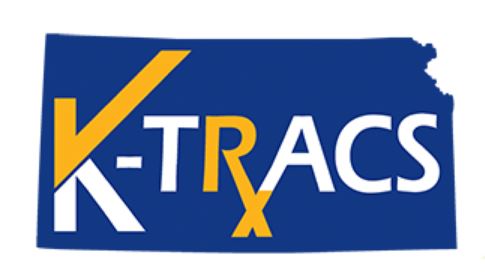TOPEKA – According to data reported to Kansas’s Prescription Drug Monitoring Program, K-TRACS, there were at least 2,579,058 opioid prescriptions and 189,525,054 opioid units (i.e., pills, patches, films or vials) dispensed to Kansas patients in 2017.
This corresponds to a rate of 88.5 prescriptions per 100 Kansans and 65.1 opioid units per Kansan. This is equivalent to dispensing an approximate 14-day supply of an opioid prescription to 8 out of 10 Kansas residents in 2017.
There has been an 8.99-percent decrease in opioid dispensation statewide from 2016, or approximately 249,942 fewer opioid prescriptions.
Among the 105 Kansas counties, 103 experienced a decrease in opioid dispensation in 2017. Republic, Hamilton, Grant, Haskell and Norton were the five counties with the highest percentage decrease. This decrease may be attributed in part to increased use of K-TRACS by prescribers and pharmacists. In 2017, there were approximately 8,300 prescribers and 2,700 pharmacists using K-TRACS in Kansas – a significant increase from 2016.
“Physicians and pharmacists alike see the value of utilizing K-TRACS. It prevents people from going to multiple doctors to get multiple prescriptions filled at multiple pharmacies without the prescribers’ knowledge,” KDHE Chief Medical Officer Dr. Greg Lakin said. “This allows healthcare providers to become aware of those that may need help and treatment with addiction.”
In 2017, the Kansas Board of Pharmacy and Kansas Department of Health and Environment collaborated to integrate K-TRACS data into Electronic Health Records (EHR) and pharmacy management systems. This enhancement to K-TRACS may also assist prescribers and pharmacists with making clinically informed decisions about prescribing or dispensing opioids.
“Bringing a patient’s controlled substance prescription history into the EHR or pharmacy management system eliminates the need to log into separate systems to review these data,” said Kansas Board of Pharmacy Executive Secretary, Alexandra Blasi. “This saves valuable time in a treatment encounter and promotes informed clinical decision-making.” As of April 2018, 21 hospitals, 22 pharmacies and 4 clinics statewide have integrated K-TRACS data into their EHR or pharmacy management system. For more information, or to request integration, please visit http://pharmacy.ks.gov/k-tracs-responsive/k-tracs-statewide-integration.
The Centers for Disease Control and Prevention’s Prescription Drug Overdose: Data-Driven Prevention Initiative Program supports this project. For more information on opioid prescription dispensation data and Kansas’s efforts to prevent opioid misuse and overdose, please visit www.preventoverdoseks.org. For more information on K-TRACS, please visit www.ktracs.ks.gov.


